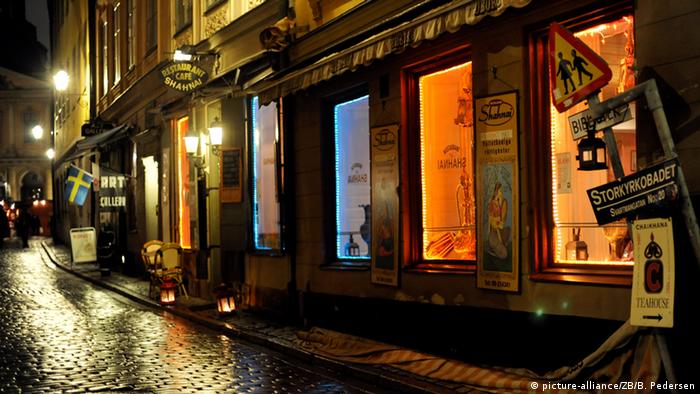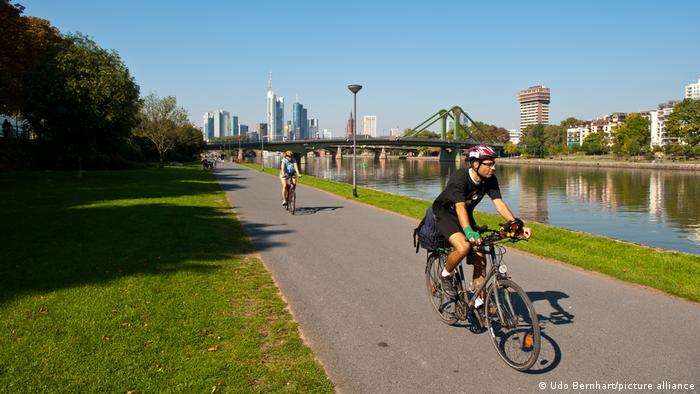If resemblances to real people in crime novels are rather coincidental, the scenes often actually exist. Those who visit them can continue the investigations on-site after reading them. There are a lot of tracks here!
Stockholm
A tour in the footsteps of Stieg Larsson's Millenium trilogy (Infatuation, Damnation, and Forgiveness) starts at the Stockholm City Museum. As a character in the novel, the journalist Mikael Blomkvist lives in the old town. The Södermalm district is also home to the heroine Lisbeth Salander's first home and her favorite pubs, the Mellqvist coffee bar, and the Kvarnen restaurant.
Ystad
The writer Henning Mankell made Scandinavian crime novels big and made the small Swedish town of Ystad world famous. Inspector Kurt Wallander is investigating here. He lives at Mariagatan 10 in a brick house. His bookshop is on the market square. His favorite café is Fridolf's Konditorei. There is a special city map listing all Wallander locations.
Copenhagen
The Danish capital is the setting for crime novels by bestselling author Jussi Adler-Olsen, who was also born here. Today he lives nearby. The gruesome crimes in his novels are pure fiction. In it, police officer Carl Mørck, who has been transferred from the Copenhagen Homicide Commission, and his assistant Hafez el-Assad in Special Department Q, reopen unsolved cases.
Paris
One of the crime classics is Inspector Maigret by Belgian author Georges Simenon. He solved 75 cases with wit and intelligence, without the forensic science that is indispensable today. During the interrogation breaks, he had sandwiches and beer delivered from the Brasserie Dauphine. A café on the Place Dauphine in the French capital probably served as a model.
Venice
In addition to Commissario Brunetti, the morbid scenery of the lagoon city plays the main role in the crime novels by Donna Leon, who comes from the USA. Brunetti and his colleague Sergente Vianello whiz across the canals in the police boat to the crime scenes. He drinks an espresso in the Bar Do Mori near the Rialto Bridge. Caution: The Vaporetto lines mentioned in the books have different names today.
Cornwall
The impressive coast in the south of England is rich in the novel settings of famous British authors. In the thriller "Rebecca" by Daphne du Maurier, the location of the action is the mansion of Manderley, modeled after her own home in Menabilly, near the town of Fowey. Alfred Hitchcock filmed the story and won an Oscar for it in 1940.
London
City tours in the footsteps of Sherlock Holmes are particularly attractive after nightfall. The legendary detective penned by Sir Arthur Conan Doyle lived with Dr. Watson at 221b Baker Street. A museum there shows all the props from the heroes' novel world. From the armchair by the fireplace to the pipe to the slippers.
Edinburgh
In their stories, the authors Ian Ranking, Alexander McCall Smith, and Kate Atkinson let the investigators roam the Scottish city of Edinburgh in search of the perpetrators. For visitors and fans of Inspector Rebus, there are special tours to important places including readings of the relevant novel scenes.
Jerusalem
A hitherto unknown setting in crime literature, Jerusalem, as the location of Inspector Ochajon, has aroused the interest of readers all over the world through the books of the Israeli author Batya Gur (1947 - 2005). A new commissioner, Avi Avraham, has recently been investigating in Tel Aviv. Its inventor is Dror Mishani, who wants to continue the young tradition of crime fiction in Israel.
Eifel
The region in western Germany promises a certain drama. Volcanic craters and lonely plateaus are the settings for around 30 thrillers, all of which take place in the region. The 55-kilometer-long Eifel thriller trail leads to crime scenes and follows the official and private paths of the investigators. Locating crime novels regionally has a certain tradition in Germany.
Berlin
Crime novels by Volker Kutscher are set in the time before the National Socialists came to power. Authentic contemporary color provides the material for the crimes that Inspector Gereon Rath solves. At that time, the real detective Ernst Gennat headed the murder committed in the police headquarters on Alexanderplatz. On the author's website, a Berlin city map from 1932 helps with the search for clues.







